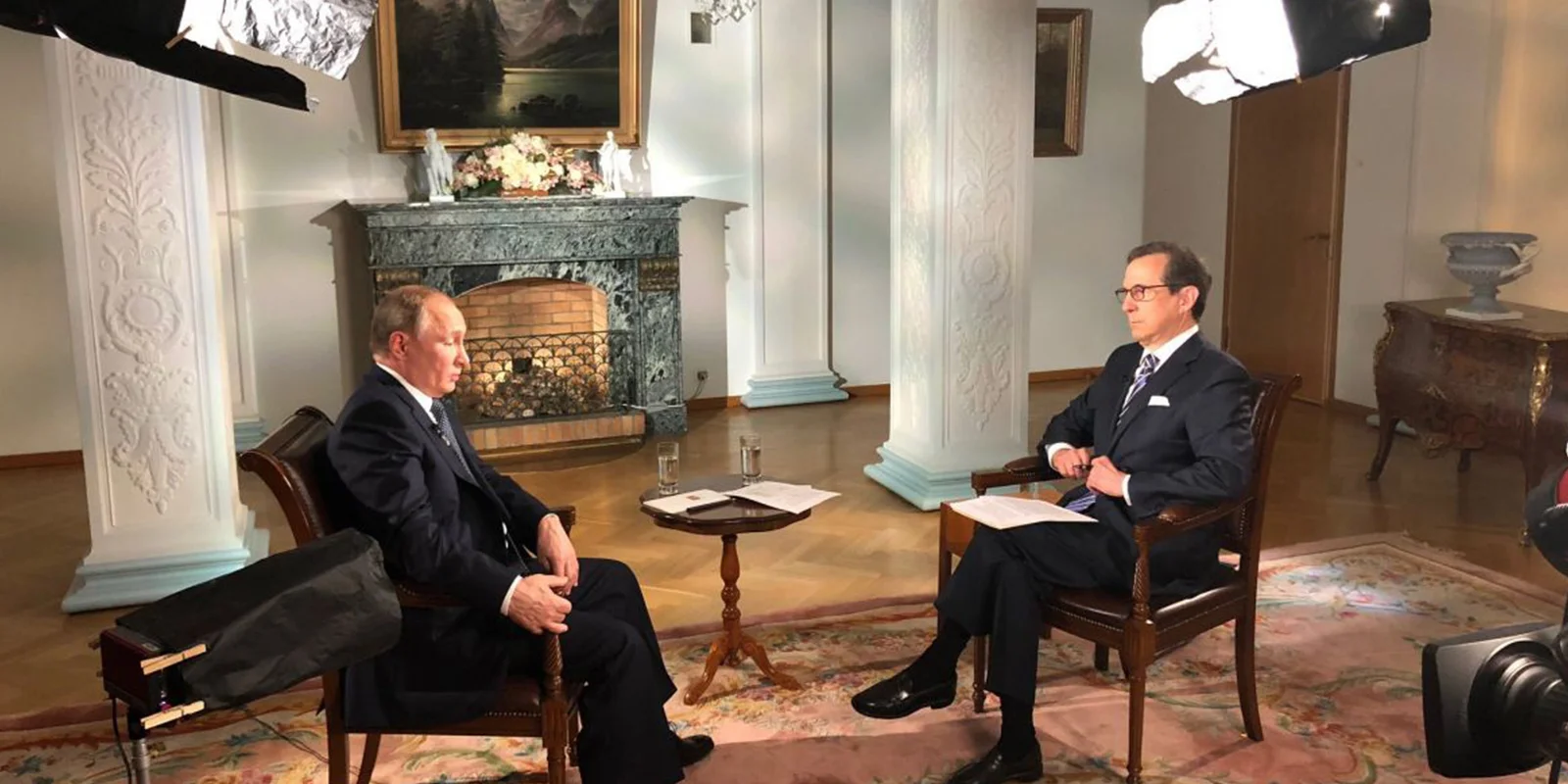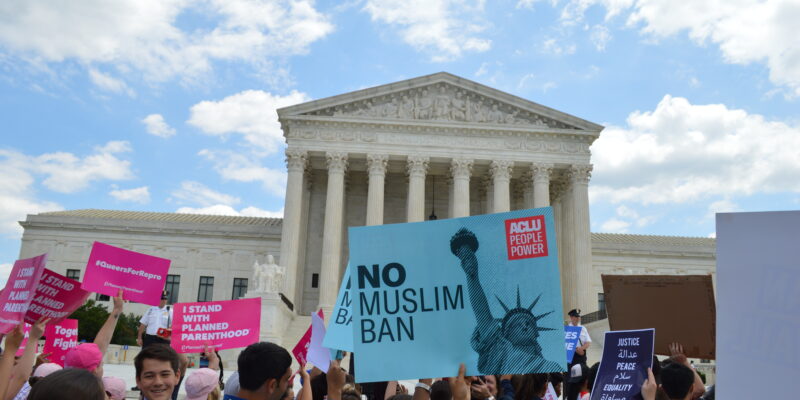
How to Handle Hostile Media Interviews
Stepping into the hot seat ranks among the best advocacy leadership you can provide. For instance, it is well known that current US President Trump watches Fox News. Are you going to pass up the chance to get directly in the President’s head because the outlet may not be in complete alignment with your views?
This post offers tips on deciding when to take an unfriendly interview, how to get ready, and what to do in the aftermath.
When the request comes in
What do you mean by hostile?
An outlet may be unfriendly and ask difficult questions, but give you time to answer. We say do that interview. A program may be known for aggressive exchanges with the host trying to break down your arguments, but they do that to all guests. It is the nature of the show, not a political stance. We say call them back.
An evening opinion show may contain nothing but venom for your positions, and provide an atmosphere that guests feel compelled to speak over one another. We say be clear on how appearing on that show serves your goals. Does the end justify the means?
We are not advising you to be reckless. For some outlets, an invite to do an interview is always a hard, professional no. For instance, if you know the host of a radio show simply seeks a punching bag on which to land their talking points, it is very hard to justify expending your time and donor’s financial investment in your organization for an interview like that. (We can’t help but include this just-for-fun parody from Hasan Minhaj.)
How does taking the interview advance my goals?
If you are following a communications strategy and not just taking every interview for the sake of airtime, you should consider the benefits of the interview. [Blatantly obvious pro tip: ReThink Media recommends that you engage in intentional communications rather than simply take every interview that comes your way. Have questions about what that means or whether an interview makes sense for you? Reach out to us.]
Are there people watching the show you may persuade to your viewpoint? Or are there people you might disengage from your opposition if they hear a viewpoint outside of their echo chamber?
[ReThink Media conducts on-camera training for spokespersons of all skill levels. We are happy to practice tough interview scenarios with you and your colleagues.]
Am I the right person?
It is a moment of rigorous self-honesty. If you are quick to anger, or sometimes get flustered, then this may not be your thing.
If you have the luxury of having more than one spokesperson at your organization, think through who is the best face to put forward. Sometimes a combative presence is the right call, but other times, it is wiser to come across as reasonable.
If your communications staffer just started at your organization yesterday—after getting their bachelor’s degree the week before—and the number one evening show on a hostile outlet wants a guest for 20 minutes, you may want to pass on the invitation.
From another perspective, are you taking the interview because you are early in your career and feel pressured by leadership? Hostile interviews are best taken by more experienced staff. Yes, we want you to push your boundaries, but as we said earlier, we do not want you to be reckless. It can be hard to say no to your boss, but it’s much harder to erase the hit piece. Be honest with yourself, and then be honest with your employer. Contact us if you are not sure; we can try a few prep questions and give you unbiased feedback on your readiness.
It is also worth remembering that sometimes passing an interview to a different organization can help the common cause, which is an important tactical decision to make. Allowing a messenger with a different type of credibility to speak could make an interview less hostile.
Are there creative ways the interview advances my organization’s goals?
One organization told us they took an oppositional interview purely to get into a heated argument on-air. Their intended audience for the interview was not the news outlet’s consumers, but their own constituents. Sending the interview out over their own social media feeds with an action item would energize their own base (and could help them raise money!).
Is the reporter just checking a box?
We have worked with journalists whose only interest in an issue set was to push their personal perspective. They would reach out to groups, but only to get a quote they could surround with hostile text and then say they had balanced the piece. Hard pass.
We have also seen instances where the guest sensed they were being asked as a token to check a gender or diversity box. If you believe you can advance your goals, then maybe take it. If not, it is fair to pass on the opportunity.
Do we need to be there?
Sometimes, you will want to have a voice in an outlet’s coverage of an issue, but the costs simply outweigh the benefits of an in-person appearance. You can always send a short—think Tweet-length—statement for the outlet to display on air or quote. Short is key. If you send several long sentences and they can only display one on screen, they will pick the one that serves their purpose best. Additionally, no viewer can read your Melville-length statement in the few seconds it will be visible.
We generally send language such as, “Please use in full or not at all,” along with such a statement. In 20 years of media work, we have only ever seen this approach objected to once and that was by an agenda-driven reporter who was just checking a box.
You decide to take the interview
Practice. Practice. Practice.
Block off time. Sit in a room and simulate the interview. We strongly advise that you do not simply think through the interview in your head. Have a couple of colleagues ask you questions and respond to them as if this were the actual interview. You may find your perfectly crafted talking point needs to be shortened. The witty comment you have in mind may fall flat. Anticipate questions. Be sure you can stay on message, no matter what. Have your team push you. That way you invest in staying calm, reasonable, ready to pivot to your talking points, and maybe even smile when the heat comes.
Here are some other ways to prepare.
Have a plan, but be ready to adapt.
You should be clear on how you plan to manage the interview. Have three talking points ready to go. Then realize: the real world does not care about your plan. It will manifest questions you may not have anticipated. The practice and planning you do in advance of the interview equips you to adapt to these moments.
If you get ambushed…
This is a very rare occurrence, but one worth examining. Virtually every outlet will tell you the subject of an interview and who else they may be talking to or who may be appearing with you. Once every second or third blue moon, though, it happens, and a host will introduce an unannounced guest—who may or may not agree with you.
Should this happen to you, your decision is fairly simple: You can stop talking and walk away, which may look bad, but is infinitely better than saying something that hurts your cause or institution, or you can stick with it. If you decide to stick with it and finish the interview, you can either opt to make your goal to be seen as reasonable or you can go on offense.
After the Interview
That was not so bad.
We know. Often the anticipation is worse than the event. If you prepared, things probably went fine.
It was a huge success.
Share the interview with all your members and over your social media channels. You may even consider sending it to select donors with a personal note thanking them. Their support for your organization empowers you to take such interviews. Thank the reporter for doing a balanced interview and ensuring that differing viewpoints were fairly heard.
Here are a few other ways to promote the segment.
I met someone. We do not agree on many things, but we both care about solutions.
Politics is full of hyper-partisan voices who excel at tearing things down. However, the space also features people who genuinely disagree, but are seeking solutions to the same problems you care about and building things. We have found these relationships, be they with journalists or guests you may have just gotten into a spitting match with on air, can be incredibly advantageous.
Conversations can connect you to allies you never conceived of, or ways of framing your arguments that remain honest to your values but speak to audiences you may never have thought of connecting with.
Welp, that was … something.
George Washington was elected President and is known as the Father of the United States, and even he lost more than a few battles during the American Revolution. If he can stand to lose a few, so can you. In the overwhelming number of cases, bad coverage is simply something you do not share with your organization’s supporters. In the rare circumstances when things went a bit further south, then you need to make an assessment. Is this a one day problem? Will calling attention to it simply exacerbate the damage? It may be best to ride out the day and not say anything further about it. Is there a pattern already in your public record that undoes the problem? Assemble that and be ready to share it with select people if they reach out.
Post-interview Trolls
Welcome to politics, friend. We are all red meat on the barbeque. You can be in favor of feeding starving children in famine-stricken lands and someone will still think you are the devil. People are going to say mean, even despicable, things about you. We suggest it is a mark of your relevance. You were in the media for a reason. If opposition voices feel the need to target you, then you likely did something right.
Want to gut-check whether to take an interview? Want to practice and get some honest feedback? Reach out to us and we’ll be happy to talk it through with you.



